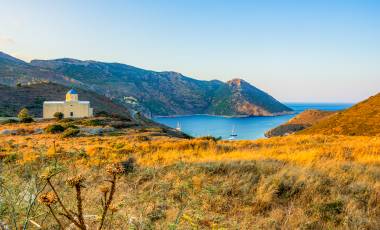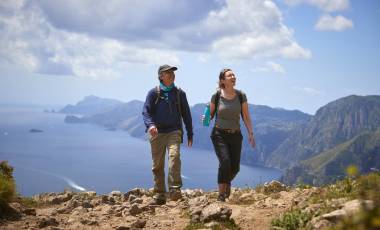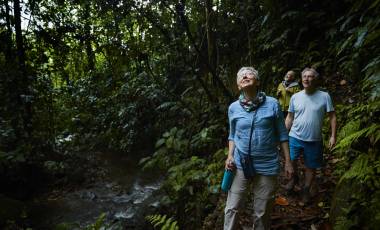
International Women’s Day Adventure
Read time – 6 minutes
Thursday 8th March marks another International Women’s Day and a crucial new campaign theme centred around #pressforprogress.
This year’s campaign will be even more significant as 2018 marks a century since women over the age of 30 won the right to vote in Great Britain.
To celebrate International Women’s Day, we’re showcasing an epic expedition undertaken by our very own Elise, of the Exodus Marketing Team, who was inspired by the legendary female adventurer, Alexandra David-Néel.
Alexandra David-Néel
French-born Alexandra David-Néel is most famous for her daring trans-Himalayan journey to Lhasa, Tibet in 1924. Inaccessible to foreigners, with just rudimentary equipment and a disguise, she eluded officials and reached the Forbidden City.
Her book ‘My Journey to Lhasa’ was published in 1927 and recounts her journey to one of the highest capitals in the world. It became an instant travel classic. In total, Alexandra travelled through Asia for a staggering 14 years before reaching her final destination-
Due to current government restrictions in what is now Chinese Tibet, it wasn’t possible for Elise to recreate Alexandra’s path into Lhasa. Undeterred, she decided to start at the very beginning of her 14 year journey. With no modern-day equipment (not even a lip balm!) Elise arrived in Sikkim, a small state in northern India sandwiched between Chinese Tibet, Bhutan and Nepal.
She then travelled from Gangtok and traced Alexandra’s migration up to Lachen, finally trekking north in order to get as close to the Tibetan border as possible.
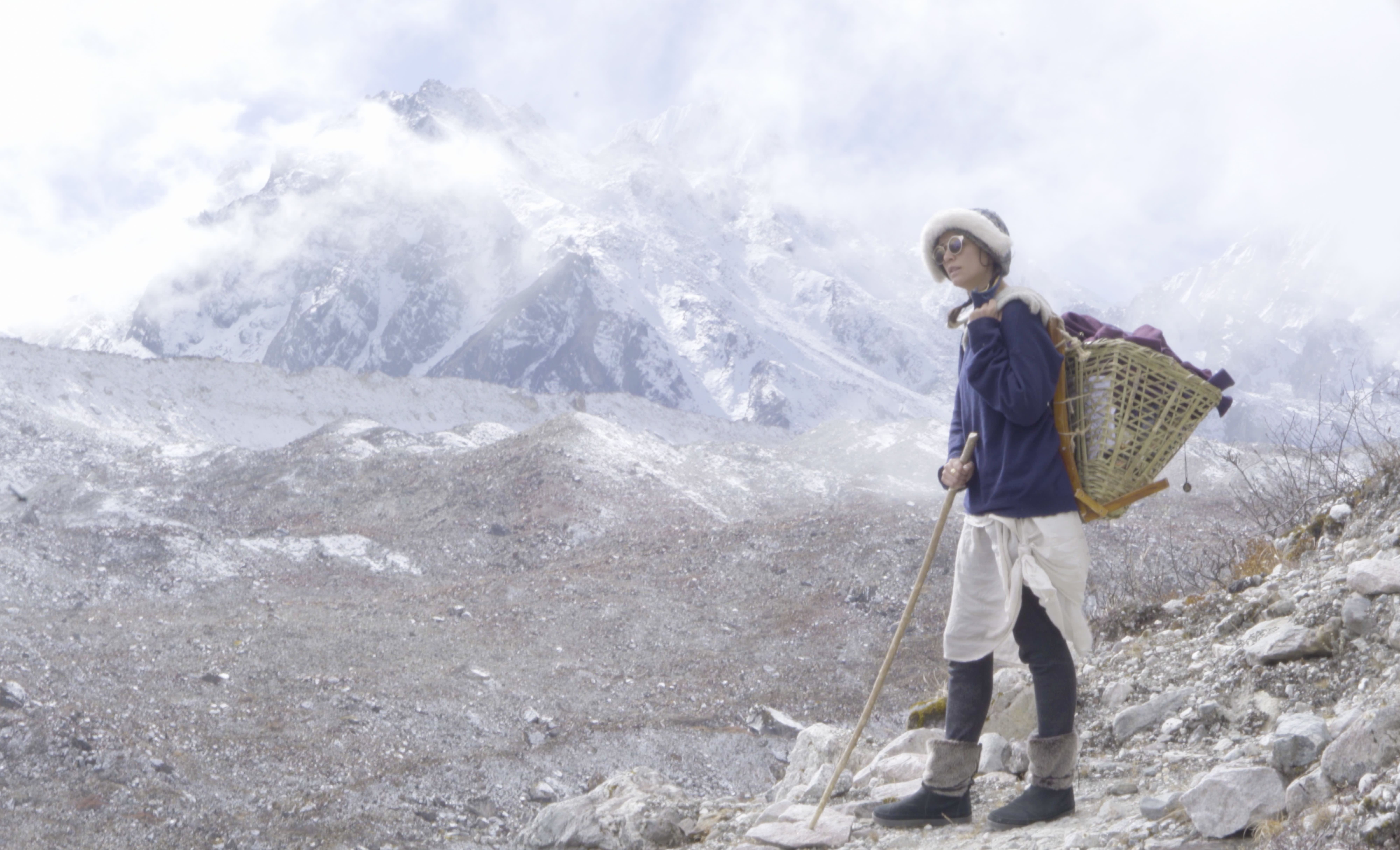 Elise on her trek
Elise on her trek
Freedom Kit Bags
Elise’s extraordinary journey has helped to raise money for a fantastic charity called Freedom Kit Bags. Freedom Kit Bags supply kits filled with sanitary products to women and girls in rural and low-income areas of Nepal, helping to end cultural taboos around menstruation.
Social stigma in these communities often results in women being excluded from daily life. The kitbags, which are equipped with two years’ worth of sanitary products, are improving women’s health and ensuring girls get to continue their education.
You can read in detail about the Freedom Kit Bags.
Interview with Elise
So what was it like? We asked our very own woman with altitude about the challenges and rewards of female travel…
Q: What was it like to walk in Alexandra’s footsteps and why was it important to you to complete this challenge?
A: I first read Alexandra’s famous book ‘My Journey to Lhasa’ when I was 16, I couldn’t get her story and what she had achieved out of my head. She must have had so much strength, physically and mentally to journey through Asia for 14 years, but more so to walk away from her life in Europe.
Women just didn’t do that sort of thing in the early 1900s, they stayed at home and had children, which is why her story is even more inspiring to me. I’ve always looked up to women who have achieved amazing things through their own sheer determination and willpower. It makes me think if she can do it, then so can I… and so can anyone!
There were moments on the trip, like when we reached the cave that Alexandra meditated alone in for a year and a half, where I thought ‘wow, I can’t believe she was standing in this exact spot looking at exactly the same mountains!’
The mountains had remained steadfast for over a century but I wondered how much the countries she travelled through had changed since that time. It’s quite astounding when you think about it like that!
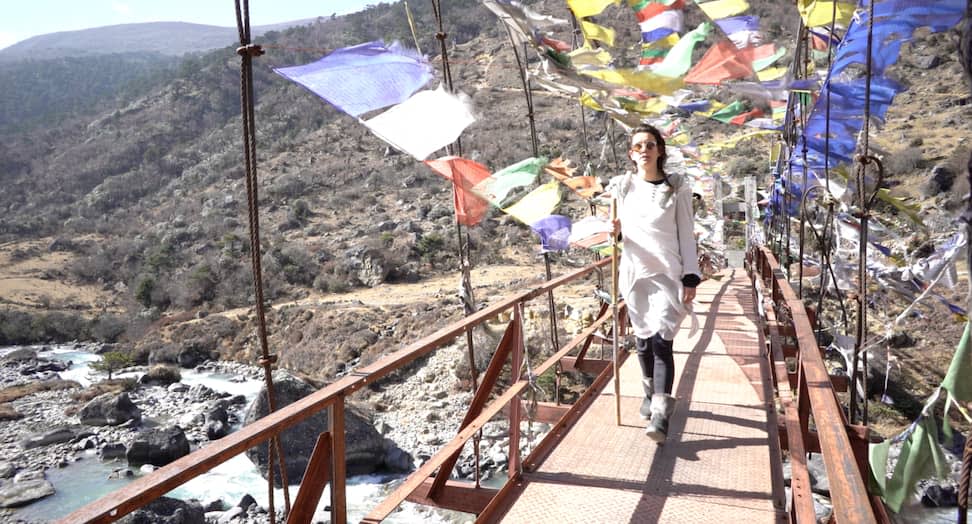 Elise in Nepal
Elise in Nepal
Q: You went with an all-female team! What was that like?
A: One of my main motivations for doing this expedition was to highlight the role of women in adventure travel, especially female guides.
I also wanted to inspire as many women as possible to put themselves out of their comfort zones and take on a challenge, whatever ‘challenge’ may mean to them. That’s why it was really important for me to have a female-lead team where I could.
The interesting thing is that I was told by numerous people that I would never find a female guide in Northern India. After a huge search, I eventually managed to find a local leader called Jangu. She was absolutely amazing and such an inspiration to be around.
I was also joined by an incredible cinematographer, Emily, who documented the journey. Emily runs her own production company with the aim of getting more women onto film sets, and her attitude and approach to her work was inspirational.
I don’t think I would have coped anywhere near as well if I didn’t have these two remarkable women there to support me. There are just some things that you can’t really discuss with men, I won’t go into detail, but there is a lot of personal stuff to discuss when you’re up in the mountains with no proper bathroom!
Women seem to have an instinct about each other’s needs, so when I needed a helping hand, a laugh, or advice, Emily and Jangu were there for me. We formed such a strong bond, one that you could only get from adventuring with other women. It made me realise how important it is for us women to stick together and support each other rather than compete.
I have to mention that we weren’t an entirely female team! It proved impossible to find female porters in India. Unfortunately, it’s just not a job that’s socially acceptable for women to do, so we were also joined by 7 local boys from Lachen, who helped us carry food, camera equipment and my spare emergency clothes.
After their initial shyness and disbelief at these three mad women, they became the life and soul of the trip and I wouldn’t have replaced them for the world!
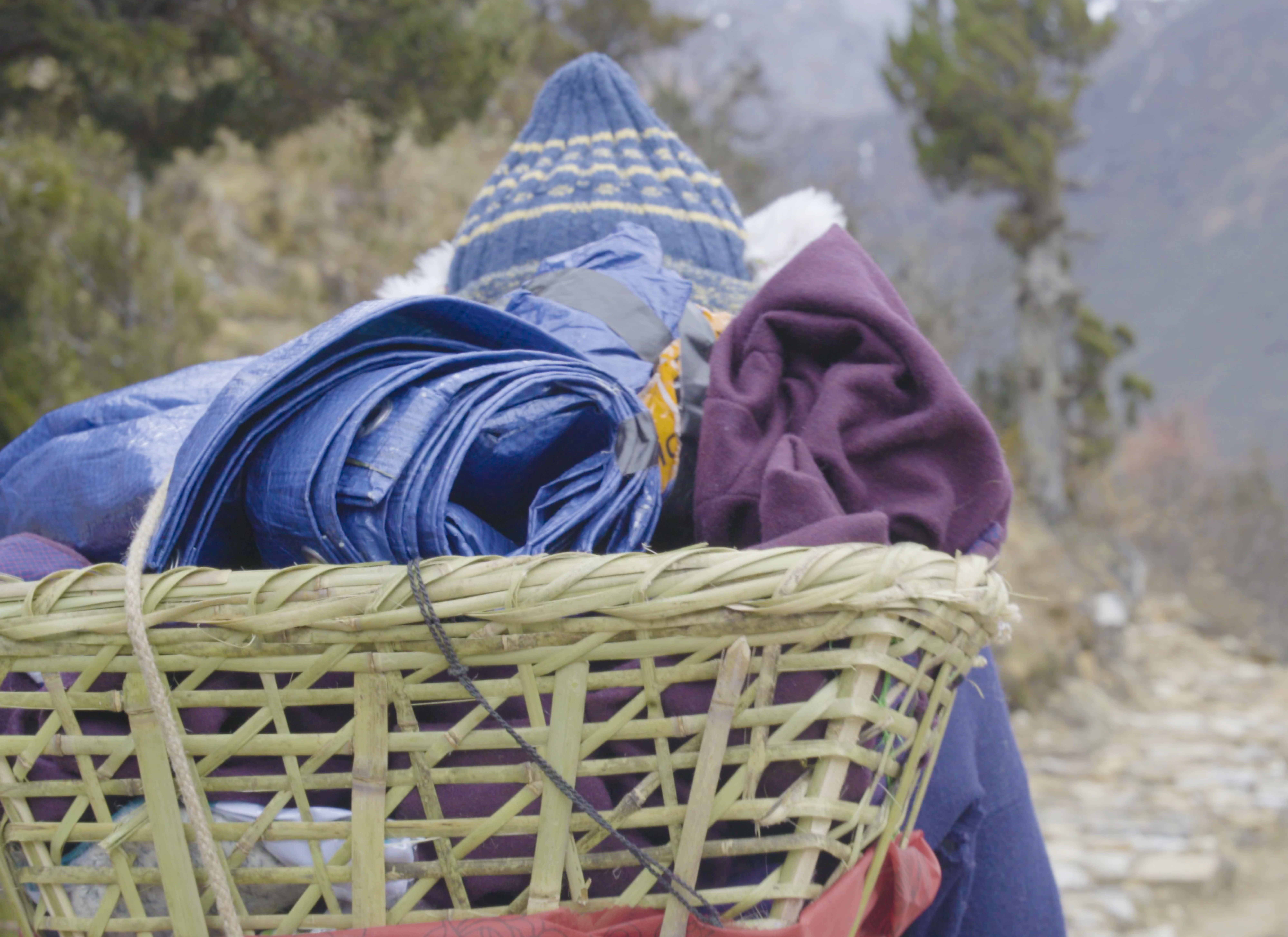 Luggage on the trip
Luggage on the trip
Q: What was the most challenging aspect of the expedition?
A: I had never organised an expedition on this scale before, in fact I’d never even really organised my own holiday before. Not only did I find it challenging, but also very daunting.
The trip didn’t follow a traditional route or itinerary, so I quickly learned that doing something against the norm was going to be quite a challenge. Oh, and did I mention the cold?!
Q: What will be your lasting memory of the adventure?
A: Without a doubt, reaching the basecamp of Mt Kangchenjunga, the third-highest mountain on the planet. We all felt such a phenomenal sense of achievement, we had conquered all the long days of walking and all the mental and physical obstacles that we met on our way.
It was a special moment for me, reaching the highest and most beautiful part of our trek, but I had no idea just how important this place was for our leader Jangu.
Mt. Kangchenjunga is a sacred mountain for the people of Sikkim and it is seen as the mother deity. It’s so revered that climbing the mountain from the Sikkim side has been banned since the 70s. It’s very rare that local people go near to the mountain due to the permit restrictions, costs and the amount of time the journey takes.
As I stood there, staring at the towering peak that had the bright sun beating down on it, I felt totally in awe, finally understanding its huge spiritual importance. We stopped as close as we could before the mighty Zemu Glacier blocked the way, and Jangu changed into her traditional clothes to recite a prayer for her late father.
We knew Jangu well by this point and it was incredibly moving for all of us because we understood how much she missed her father, and what an important role he had played in her life. Saying a prayer for him in front of Mt Kangchenjunga was one of the greatest respects she could pay to him and something she never thought she would be able to do, so you can appreciate just how significant this moment was.
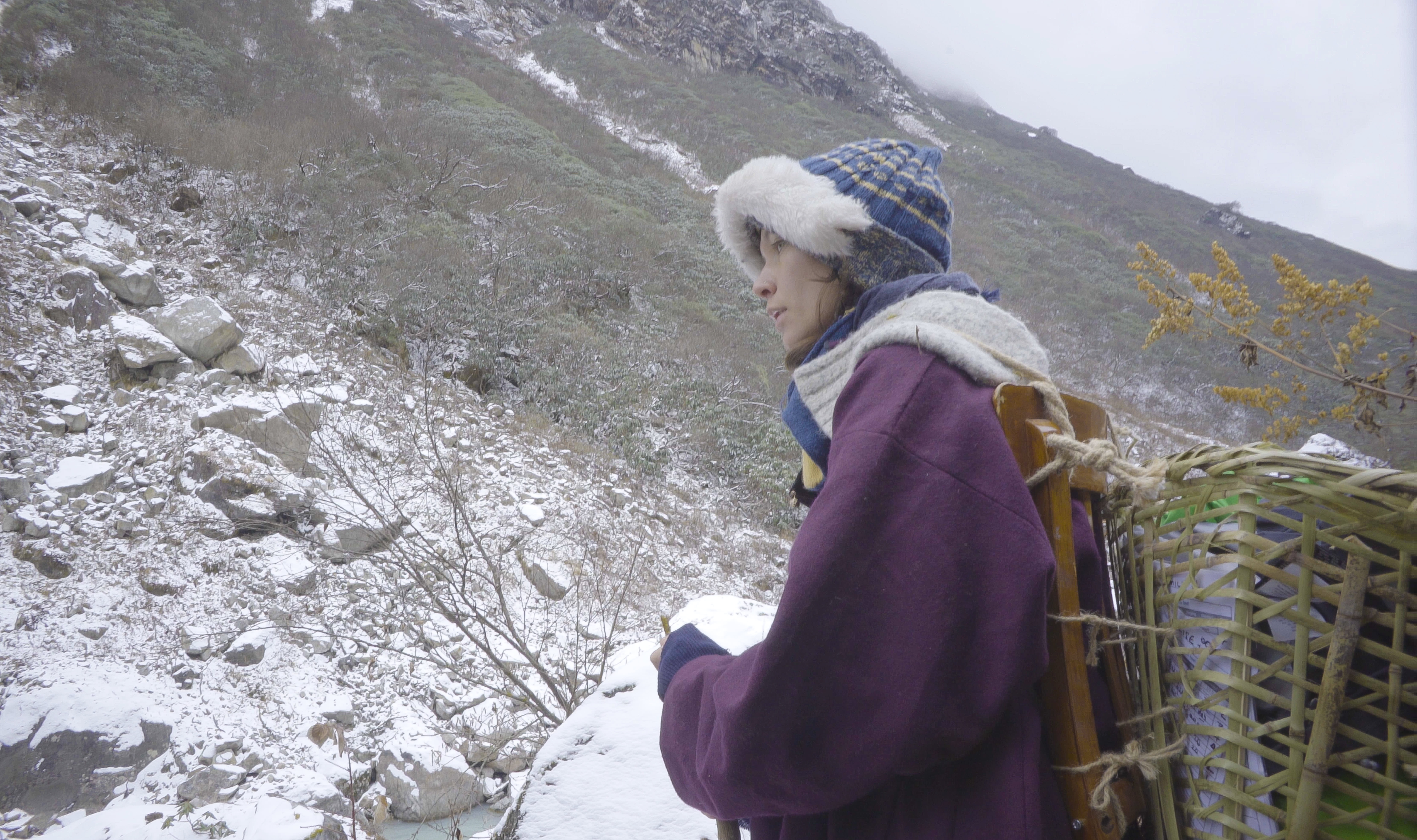 Climbing Mt Kangchenjunga
Climbing Mt Kangchenjunga
Q: Why did you choose to support Freedom Kit Bags instead of another charity?
A: Freedom Kit Bags is an amazing charity that empowers women and girls in rural and low-income areas of Nepal by providing them with a reusable kit containing everything they will need during their period.
Due to cultural practices that go back centuries, women and girls are seen as “unclean” during menstruation. One of the main reasons for this is their inability to manage the physical effects of having a period.
This results in women not being able to continue life as they normally would, and in many cases means young girls are not able to go to school for a whole week every month.
The lack of hygiene education also means that many village women suffer from infections which then lead to health complications such as infertility, kidney problems and pelvic infections.
Exodus has been supporting Freedom Kit Bags for a while and I’d wanted to help in some way ever since I first heard about their work. I couldn’t believe that some women and girls don’t even have a pair of knickers as a starting point, and it’s just not possible to live normally during your period if you don’t even have pants!
I think any woman can imagine how impossible life would be without access to sanitary items. The other great thing about these kits is that unlike disposable sanitary items, they are environmentally friendly, so the natural environment is safe too.
Periods are still such a taboo subject even here even in the UK which is pretty unbelievable and it really needs to change. It’s important that we all, women and men, talk more openly about these topics and make it part of everyday conversation.
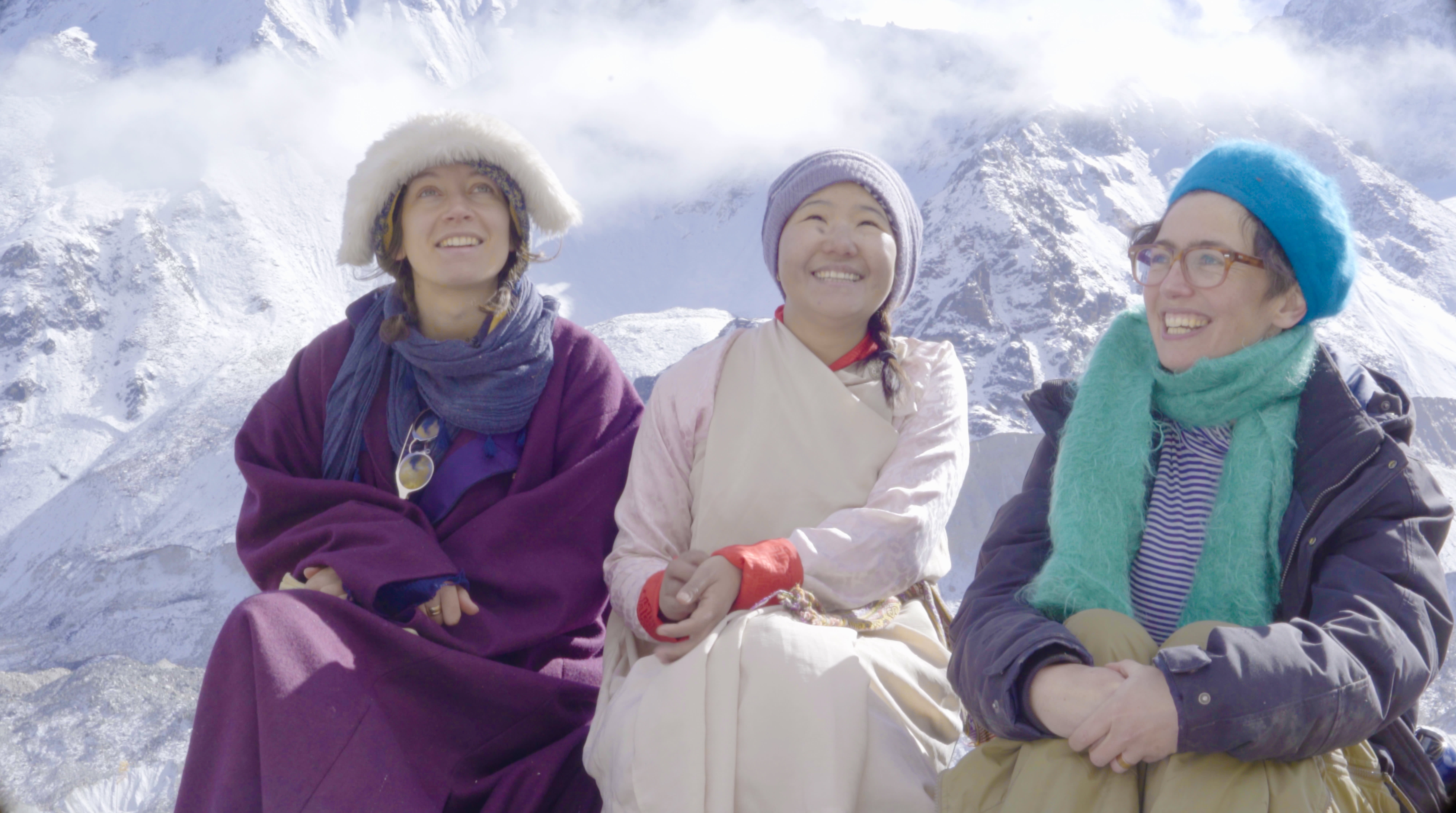 Elise, Jangu and Emily
Elise, Jangu and Emily
Q: Do you have any top tips for women wanting to undertake their own adventure of a lifetime?
A: I’d imagined this adventure when I was a teenager but never had a solid plan in order to make it happen. I’ve always been an anxious person, a combination of not having the confidence to take on the challenge and the devil on my shoulder telling me it was a ridiculous idea held me back a bit.
For a long time I couldn’t picture it all physically coming together and that I was actually going to trek through India wearing clothes from the 1920s!
This experience has taught me that no matter how silly you think an idea is, or how unreasonable it may seem, just go with it. My whole life I’ve worried about what other people think, which has been a huge barrier for me in many aspects of my life.
Even though I often still think this way, this expedition has made me realise that the opinions of others should never discourage you from following an adventure or dream.
When we are teenagers, we have dreams and ideas that all feel possible, but as you get older and go through the motions of growing up and having more responsibilities, we lose this free way of thinking.
It’s important that we try and revert back to our 16-year-old minds and maintain that ambition and possibility. So, grab some friends and go on an adventure – it really will change your life.
Watch Woman with Altitude in full here:
[[{“fid”:”127291″,”view_mode”:”default”,”fields”:{“format”:”default”},”type”:”media”,”field_deltas”:{“13”:{“format”:”default”}},”attributes”:{“class”:”media-element file-default”,”data-delta”:”13″}}]]
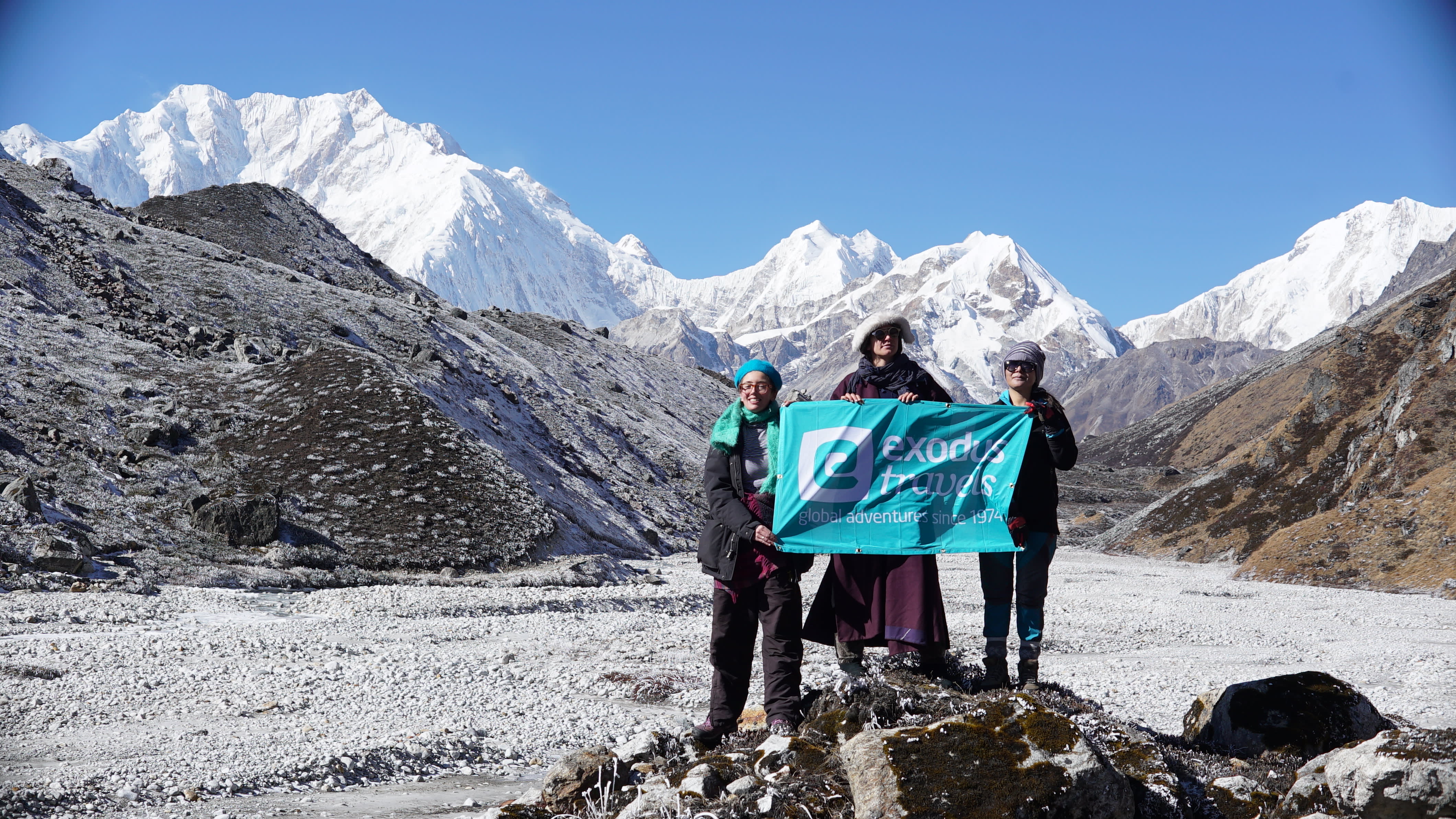 Exodus team in the Himilaya
Exodus team in the Himilaya

